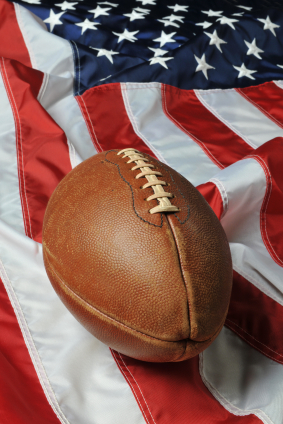
Does a win for the hometown team have an impact on which candidate wins an important election? It very well could, according to research by Loyola Marymount University’s Andrew Healy.
Healy, an assistant professor of economics, recently co-authored a paper comparing four decades’ of election results with the outcomes of major college football games. The results were clear.
“When a big college football team wins before Election Day, the incumbent candidate in that team’s area gets a small but significant boost in voter support,” Healy said. “This is especially true in areas where the team has a strong fan base.”
Specifically, the study found that a win by a college football team with an avid fan base helps the incumbent party by 2.8 percentage points in that team’s area – more than enough to swing a close election.
Healy and his co-authors provide evidence suggesting that this increase was due to the emotional effect that the games had on voters who make their decisions in the two weeks preceding the election. Games that occurred before that had no impact at the polls, the study found.
The good vibes created by winning sports teams is not limited to election results or football. The researchers also uncovered a related pattern for college basketball teams.
In a survey taken just days after the fourth round of the 2009 NCAA basketball tournament, people whose local team reached the Final Four were more likely, on average, to say they approved of how the president was handling his job. They also said the nation was headed in the right direction more often than people from other parts of the country.
“Our research showed it was the act of winning one or two important games, and not the overall strength of a team, that had this impact on how people feel about their political leaders,” Healy said.
The report, co-authored by two Stanford University professors, builds on a body of research about non-political factors that influence voter behavior. Previous studies suggest that natural disasters and gasoline prices, among other things, can affect how much voters support incumbents.
Does that mean that with the NFL season just beginning, and Major League Baseball playoffs approaching, politicians should root for their home teams a little bit harder?
“It’s too early to say whether these results would be duplicated when you look at other sports, and how big the impact would be,” Healy said. “What is clear is that events that have nothing to do with the role of government can have a significant impact on the political decisions that people make.”




